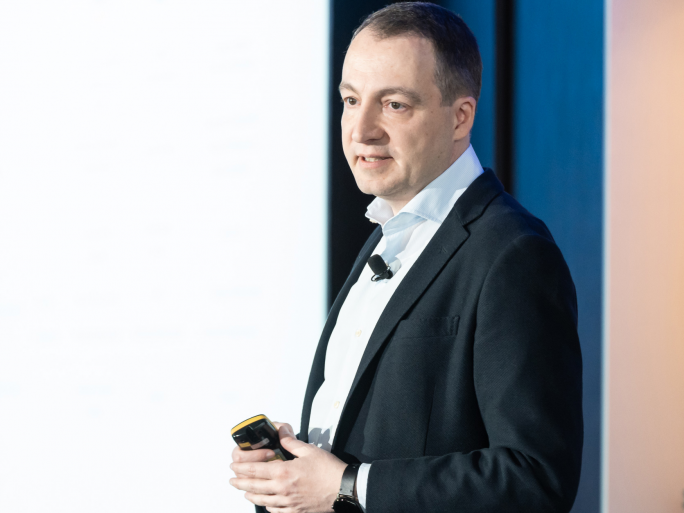Keepler Data Tech: ‘Investment in GenAI will continue to grow, yet will be subject to more rigorous scrutiny from a business perspective’

We interviewed Juan María Aramburu, CEO of Keepler Data Tech, to learn his views on the impact of Generative AI, the sectors that can extract the most value from these technologies and the keys to successfully tackle this type of projects.
We interviewed Juan María Aramburu, CEO of Keepler Data Tech, to learn his views on the impact of Generative AI, the sectors that can extract the most value from these technologies and the keys to successfully tackle this type of projects.
Generative AI has taken centre stage in recent months in response to what we have come to know as Artificial Intelligence, now referred to as traditional AI. Organisations are testing the potential of GenAI, the vast majority in the pilot phase (83% in the pilot or assessment phase, according to Gartner) but few are actually making the solutions generated profitable (only 9% according to the same source). This is the great challenge in the short term, to convert ideas and pilots into real projects that reflect the impact of the investment.
We talked about this with Juan María Aramburu, CEO of Keepler Data Tech, a company specialising in AI and data that helps its clients successfully embark on this journey, as uncertain as it is necessary for companies that see emerging technologies as the tools to impact their data and turn it into a valuable asset for growth, innovation and decision-making.
Here is the interview with Aramburu:
-Generative AI is the big technology trend in 2024, how is it changing the way companies are approaching technology transformation and how important is it becoming when it comes to allocating IT budgets?
If 2023 was the year when technology surprised many companies, 2024 marked the moment when most companies decided to invest in generative AI. In 2025 we will see many CFOs questioning IT teams about the return on that investment. I am convinced that investment in AI, especially generative AI, will continue to grow, but will be subject to much more rigorous scrutiny from a business perspective. This will mean that the areas that invest in it will prioritise demonstrating the value delivered and its impact on key KPIs, and that’s where we see that we can help.
-What is Keepler’s vision for technological change in the short and medium term? Where should organisations focus their attention?
AI is increasingly integrated with data analytics, improving both the usability and operation of data platforms. As business needs become more sophisticated, it is imperative to have modern storage technologies that can handle large volumes of information efficiently and cost-effectively. This is why we remain committed to the public cloud.
In addition, AI and generative AI have evolved beyond simply augmenting human capabilities; they are now able to make decisions and execute actions autonomously through Intelligent Agents. We see these Intelligent Agents as a solution that will become very relevant in organisations looking to streamline and optimise complex processes that can greatly accelerate the process through automation and provide the user with the ability to interact with data in a more sophisticated yet simple way.
Data governance is also a critical aspect to ensure that information is managed securely, efficiently and in line with the strategic objectives of the business. Designing a proper data strategy is the foundation for AI projects, ensuring an organisation is a cornerstone of successful AI projects and investments. Based on this, we have extended our capabilities to cover this phase of the process to provide an end-to-end service.
-What are the keys to success for AI projects?
We identify two keys that organisations must take into account in order to successfully tackle these projects.
The first and foremost is to approach AI as a comprehensive plan, not as a set of isolated use cases. This allows the transformation of the company to be structured more efficiently, both culturally and technologically, and facilitates knowledge management. In addition, this strategic vision better justifies investments and encourages greater reuse of resources.
Once we have such a plan, the most crucial step is to have AI-ready data, which implies all the information needed to train the models is available and that the quality of the data is adequate to ensure optimal results.
Measuring the impact of AI on the organisation is one of the main challenges for most decision-makers involved in this transformation. How can this challenge be addressed and what advantage does measuring bring?
There are two approaches to understanding AI: one views it as a technological capability available to business users, while the other perceives it as an engine of business transformation with well-defined objectives.
In the first case, investment in AI will always be under question; in the second, the return on investment will be clear and justify the expenditure. At Keepler, we are committed to a continuous assessment of the value that AI brings, using standardised tools for its measurement and implementation. We believe it is essential that the CDO’s role is able to effectively measure and communicate the value generated by AI.
-We are still in an exploratory phase in the field of GenAI technology. Right now, the use cases are largely focused on content generation, what other applications are we not yet seeing or daring to explore?
Clearly, Intelligent Agents play a crucial role. These agents are to generative AI what microservices are to software development. At Keepler we are already collaborating with companies to create networks of Intelligent Agents that coordinate the execution of business processes efficiently. These Agents not only use generative AI to communicate in natural language and process unstructured data, but can also interact with applications and databases to execute actions autonomously.
-Which industries can benefit the most from generative AI and the paradigm shift it represents?

All industries can benefit from generative AI. As content creation becomes part of the core business, the positive impact will be even greater. If we look at areas of a company in any industry, we see that marketing and sales departments are already using generative AI to automate the creation of proposals and promotional materials. Operations departments are using it to query large volumes of operational manuals and regulatory documents. In customer service, generative AI simplifies contract review, while data teams use it to query complex databases using natural language. Finally, development departments apply it to optimise and improve the source code of applications.
-There is a lot of talk about the jobs that generative AI can eliminate, but its implementation will also make it possible to generate new profiles specialised in its use that can bring more value to companies. What is Keepler’s vision in this regard?
To successfully navigate the wave of AI-based automation, a strong data culture and education is essential. This knowledge enables people to identify where to apply AI and what impact is expected. Without that understanding, AI can be perceived as a threat rather than a powerful tool.
We encourage and work with our clients on AI training and change management. In organisations where we do this work, the adoption of AI is significantly higher, and its impact is positively valued at both the business and personal levels, strengthening its acceptance and effectiveness.
-How is Keepler dealing with the rise of AI and generative AI and how are you integrating it into your service offering to clients?
Artificial intelligence has been a core part of our portfolio since the launch of Keepler in 2018, which has allowed us to develop all the necessary capabilities to apply AI to our clients’ key business processes. Thanks to this solid foundation, we have quickly incorporated generative AI into our offering.
Most notably, we have clearly identified the importance of measuring the value that AI brings to the business. As a result, we now offer our customers an end-to-end service that spans from defining AI and generative AI strategies to their full implementation in production environments.
-What is your prediction for AI in the coming year?
By 2025, generative artificial intelligence will integrate with traditional AI, expanding its use beyond simple explanation or information for users, towards autonomous decision-making and independent execution of actions. Enterprises will develop Intelligent Agents capable of coordinating with each other, enabling complex workflows to be performed with minimal or no human intervention.
This scenario makes 2025 a key year for companies to start monetising AI. In the short term, this is critical, as it will allow organisations to continue their natural evolution towards becoming truly Data-AI Driven businesses.
While doubts about these investments still persist, our experience working with large organisations shows that business areas are increasingly better prepared to generate a realistic demand for data and AI-driven solutions, supported by a concrete ROI plan. At Keepler, we work closely with businesses to co-create their AI-based strategic improvement plans, and we have the capability to implement these cases and measure their real return.